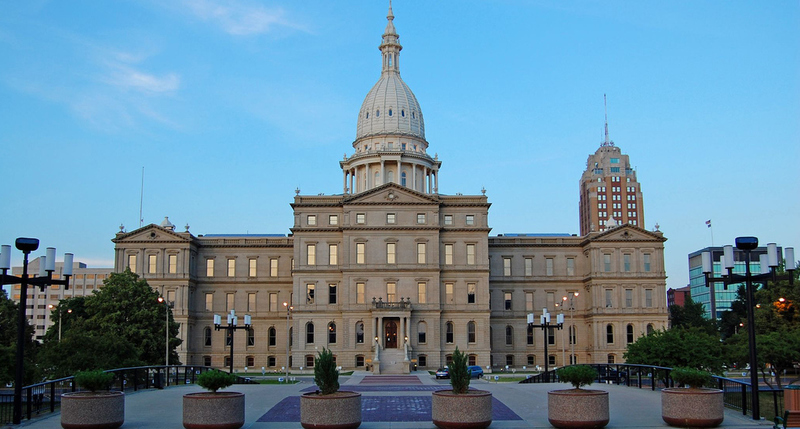Michigan Online Gaming Bills Re-Introduced In Both Chambers Of LegislatureAfter Last Year's Last-Second Veto, A New Governor Makes It Very Likely Michigan Will Have Online Gaming In 2019 |
|
|

When it comes to online gaming, the Michigan legislature is taking on the old mantra of “If at first you don’t succeed, try, try again.”
The state legislature has introduced a pair of bills that would legalize nearly all forms of online gambling in Michigan. The move comes just a few months after former Gov. Rick Snyder infamously vetoed a previous online gambling bill at the end of 2018 just days before leaving office.
Snyder, a Republican, claimed that there wasn’t enough promising data to support the change. He also speculated that legalizing online gaming would divert funds from the state’s lottery system. Snyder was replaced as Governor by Democrat Gretchen Whitmer, who defeated Republican nominee Bill Schuette in the November gubernatorial election.
Democratic Sen. Curtis Hertel sponsored S 186, the bill in the Senate, while Republican Rep. Brandt Iden sponsored H 4311, a nearly identical bill in the House. Iden also sponsored last year’s bill that Synder ultimately vetoed.
Each bill aims to create a new division within the Michigan Gaming Control Board that would have the sole task of overseeing online gambling. Like most other states that have legalized online gaming, land-based casinos would be the only entities eligible to apply for internet gambling licenses.
Those licenses would cost casinos $200,000, while revenue would be taxed at eight percent. Michigan has both tribal and commercial casinos, both of which would be eligible to apply for licenses.
Iden’s bill in the house is up for its first hearing Tuesday and is expected to garner similar support to last year’s attempt. Gov. Whitmer is a former State Senator, and while she never expressed a sentiment about online gambling, does support sports betting legislation in the state. There is language in the bill that could legalize sports betting in Michigan as well.
Had Synder signed the bill last December, Michigan would have become the fifth state to legalize online gambling. With the delay and the quick progress of similar legislation in West Virginia, Michigan is still on pace to become the sixth.
New Jersey, Nevada, Delaware and Pennsylvania are the only states to have legal online gaming thus far. Pennsylvania passed online gaming in 2017, but its residents are still waiting for the platforms to roll out.
